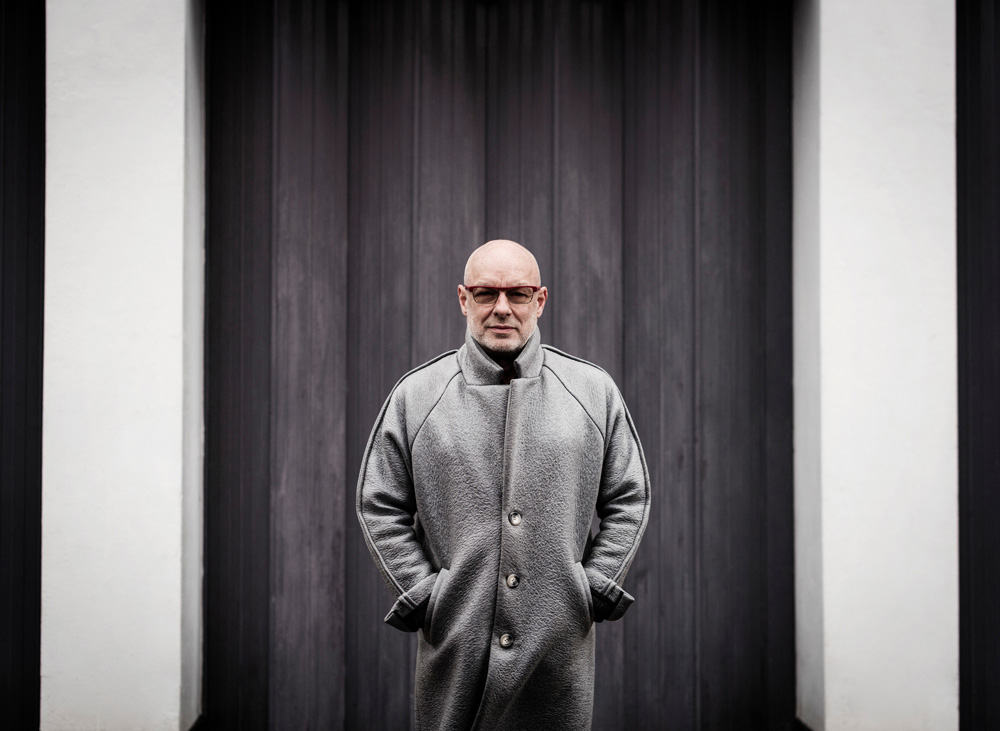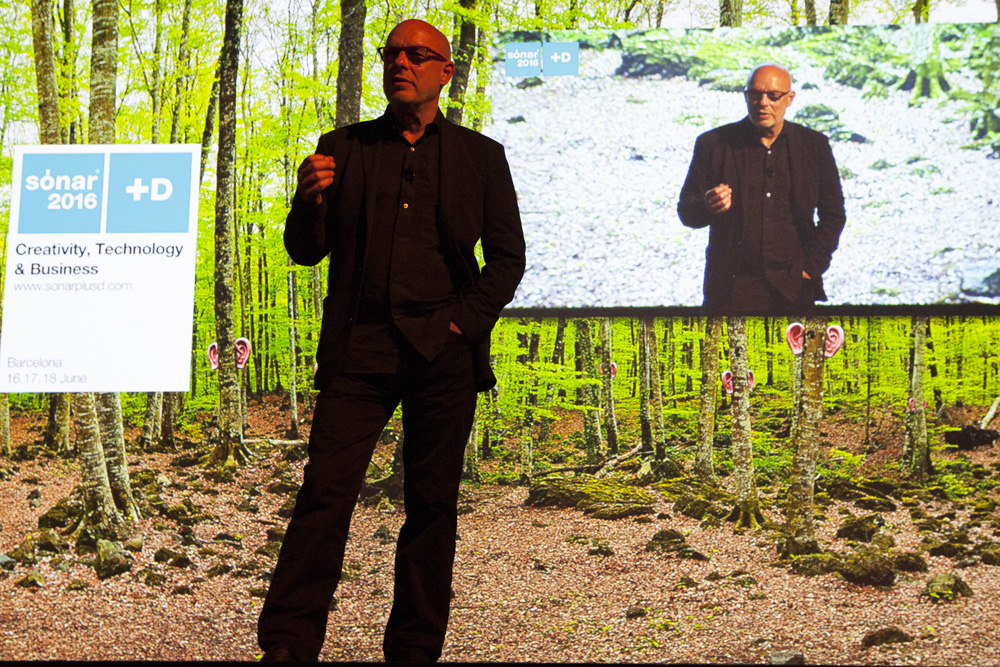
Brian Eno’s inaugural talk at the Sónar+D festival in Barcelona will undoubtedly stick in the memory of those fortunate enough to be present, but will perhaps also find a wide echo in the souls of those who, by chance or through a thirst for knowledge, will hear only an extract of his 45 minutes of dense monologue. A talk which began with the value of human beings in modern society, and ultimately came to sociological conclusions of universal scope. “Why do we play?” was indeed the primary theme explored by Eno, with literary quotes and music references (from Dickens to Chomsky, via Elvis and The Velvet Underground), with enormous clarity and humanity, in a masterful narrative crescendo. In a world where individual minds are increasingly connected to each other, thanks to the technology we now, more than ever, have at our disposal, our lives are extremely diverse from one another and at the same time highly interdependent, in a constant paradox. Two fundamental things unite us indiscriminately in a whole made up of the variegated mix of humankind: the first of these is science, the public language in which consensus is reached on reality by means of empirical experimentation.
The second is culture, whose task – unlike science, which does not define values – is to organise discussions around what pleases us or otherwise, in other words according to public consensus and the definition, precisely, of shared values. The only way to cooperate and walk in harmony on the same planet is through art, music and culture, everything that makes us experience states relevant for our body and soul together. Most communication between humans is actually a search for consensus (tricky to quantify scientifically, as it has to do with the realm of feelings, which vary considerably from era to era), and art has the merit of changing and modulating public consensus. Eno says: “My favourite definition of art is: art is everything you shouldn’t do”, such as, for example, choosing a garment that doesn’t have to be of a particular brand, but is a decision that determines a stylistic choice of one possible world over another.
People express preferences because certain things represent worlds that attract them or in which they’d like to live, and therefore styles are like flags: they indicate something we believe in. “I always thought that my mission as an artist was to try to make the objects that belonged in the world I would like to live in…if I made the music that I thought would belong in the future, somehow it would help to make that future happen.” In other words, we can participate collectively in turning what we aspire to into reality, and as a whole society we can project images, desires and petitions for life which, once expressed, can contribute to the evolution of our society itself according to the dictates of culture, both mainstream and otherwise. “Culture is the lubricant of society”; it suggests to us what to think, but especially how to feel, it’s where people come together, and where beauty becomes concrete in diversity through a complex series of messages, sometimes subliminal and extremely subtle.

And therefore, Eno concludes, just as children learn by playing, in the same way adults learn through art. A good reason why making art and talking of art, in any way or form, remains an important job, whose value should be quantified not merely in economic terms, but on a wider scale. When children play they are using their imagination to try and understand what other people think, and: “Play is the centre of what all of us are doing: we are giving people the occasion to play and to learn by playing”. Despite the fact that international politics would like to convince us that our worth as human beings is based on how much we produce in the market system, what Eno suggests is that economic value is not the only key for interpreting and measuring our society, that collective decisions (at political and social level) should also be influenced and inspired by the reflections and the work of experts in the arts, by the results of the culture whose advancement contributes to the establishment of new values and new belief systems in the world we live in, in artistic communities and elsewhere.
images (cover 1) Brian Eno, photo by by Shamil Tanna (2) Brian Eno, complex Sonar 2016. ph: Bianca Devilar







































